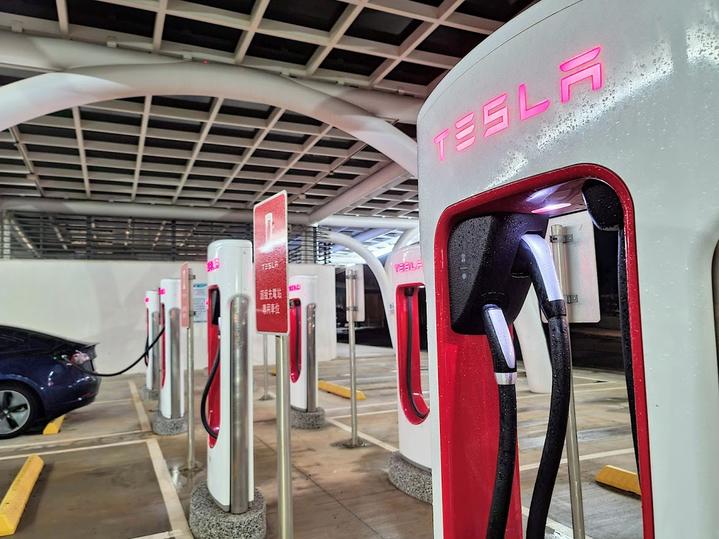Looks like Tesla will be switching away from their proprietary connector to CCS2 in Taiwan. The move doesn't make a whole lot of sense practically, given Taiwan is similar to the USA in that other than Tesla proprietary, they mainly use J1772 and CCS1 (and Taiwan's standards authority seems to be pushing for CCS1), so moving to CCS1 would make a ton more sense. The speculation I guess is Taiwan is too small a market to make a dedicated CCS1 port or superchargers using the CCS1 connector, so they just use CCS2 given they can use parts directly from Europe (this also suggests cars for Taiwan may be supplied from Europe in the future, like from Giga Berlin). But if this speculation is true, that also seems to bode poorly for anyone expecting Tesla to switch to CCS1 anytime soon in North America (because if they had any plans to do so, doing it in Taiwan would be a good way to start).
Tesla Deliveries in Taiwan Said to Include CCS2 Charging Port - TeslaNorth.com
The article above doesn't cover it but there's talk this timing is related to the Taiwan trade negotiations, with AIT (which is like USA's embassy in Taiwan) pushing for charge connector standardization and CCS2 specifically. That doesn't make a whole lot of sense to me either (due to reasons above) as wouldn't the USA want to push CCS1? Maybe it has to do with timing (Taiwan's standards body pushing for industry standards, which Tesla's doesn't qualify due to its proprietary nature).
Google Translate
On a related note, the article mentioned a Taiwan manufacturer Pegatron that is planning to open a factory in Texas to manufacture Tesla components. Apparently the Korean Tesla to CCS1 adapter is going to be made by Pegatron.
Ccs1(dc combo) test finish
I guess one thing that might result from this is a Tesla to CCS2 adapter. Shouldn't be too hard given there's already a Type 2 to CCS2 adapter for the European market.
Tesla Deliveries in Taiwan Said to Include CCS2 Charging Port - TeslaNorth.com
The article above doesn't cover it but there's talk this timing is related to the Taiwan trade negotiations, with AIT (which is like USA's embassy in Taiwan) pushing for charge connector standardization and CCS2 specifically. That doesn't make a whole lot of sense to me either (due to reasons above) as wouldn't the USA want to push CCS1? Maybe it has to do with timing (Taiwan's standards body pushing for industry standards, which Tesla's doesn't qualify due to its proprietary nature).
Google Translate
On a related note, the article mentioned a Taiwan manufacturer Pegatron that is planning to open a factory in Texas to manufacture Tesla components. Apparently the Korean Tesla to CCS1 adapter is going to be made by Pegatron.
Ccs1(dc combo) test finish
I guess one thing that might result from this is a Tesla to CCS2 adapter. Shouldn't be too hard given there's already a Type 2 to CCS2 adapter for the European market.




